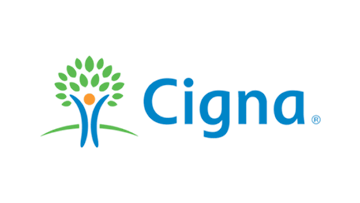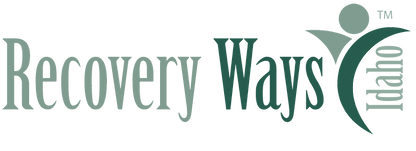Leadership Team
Aida Dizdar-Barac, LCSW
Director of Special Clinical Programs
Aida graduated with Master’s degrees in Health Sciences and Social Work from Boise State University. She has over 15 years of experience working with diverse populations and families through various positions in the community including: career consultation/retention, case management, and psychosocial rehabilitation. Currently, she is working with individuals and families with diverse needs and experiences from an array of backgrounds. Aida utilizes an integrative approach focusing on empowerment of individuals within their unique social/environmental systems to help them build on their resilience and thrive in many areas of life.
Daniela Kecman
Community Based Provider and Operations Manager
Daniela Kecman, BA graduated from Boise State University with a degree in Spanish language in 2012. She has over 20 years’ experience as an interpreter, refugee resettlement case manager and employment specialist in the Boise area. During her time at Recovery Ways Idaho (Formerly IBH) she has worked as a CBRS, CM and CPSS, serving mostly refugee women population and working with them on reducing PTSD, adjustment to the new community, self-sufficiency and achieving their personal goals. In the past year, she has become the Community Based Provider manager as well as taken on Operations responsibilities.
Clinical Team
Ben Ruhter, CADC, LPC
Clinician
Ben Ruhter began working as a substance abuse counselor in 2012. After raising three children, he decided to pursue counseling further, by completing his master’s degree through Northwest Nazarene University and obtaining his LPC, allowing him to help more people with a variety of substance use disorders and mental health struggles. His experience and expertise involve working with trauma, addiction, mood, and anxiety disorders. His approach to counseling comes from a humanistic and attachment base. What this means is he treats people as humans who are often complex and prefers to meet a person where they are and understand wounds that may led to certain behaviors before finding healthy alternatives.
Sarah Chase, LMSW
Clinician
Sarah Chase, LMSW graduated with a Master’s in Social Work from Boise State University in 2018. Sarah has experience working with a variety of individuals including those with psychosis disorders, trauma, depression, anxiety, and ADHD. Sarah primarily utilizes Cognitive behavioral therapy, with a mindfulness approach solution focused therapy, and draws from aspects of dialectical behavioral therapy to address emotions and related needs. Sarah also focuses on empowerment and viewing the individual through a person-centered approach which builds upon the individual and personal factors of resilience and strength.
Community Based Team
Greg Anderson
CBRS/CM
James (Greg) Anderson is a CBRSW with 17 years of experience in the field and another 3 years in mentoring in-patient teens prior in Mountain Home. He received a bachelor’s degree in social sciences from California State University Stanislaus in 1980. He earned The Certified Psychiatric Rehabilitation Practitioner credential (CPRP), which is a test-based certification that fosters the growth of a qualified, ethical, and culturally diverse psychiatric rehabilitation workforce through enforcement of a practitioner code of ethics. Greg works with adults as well as school-age and teens and focuses on strength-based theories of connecting with and empowering people to become their best selves in life along with gaining social confidence in their communities.
Hermie Bowers
Peer Support Specialist
Hermie graduated from ISU with a degree in history and secondary education. She is from Twin Falls, where she worked as a CBRS/CM for 12 years before moving to the Boise area. She has been employed with IBH-RWI for over 5 years. She currently provides Peer Support Services and Family Support Services and enjoys working with adults and children. She enjoys the outdoors, traveling, and taking in a baseball game when she can with her family.
Deborah Ludlow
Certified Peer Support Specialist
Deborah Ludlow CPSS, BHT, is a Certified Peer Support Specialist for RWI. She has spent the last 22 years working in the behavioral health field. In that time, she has done everything from leading programs and training future Peer Specialists, to providing direct Peer Support services. Currently she uses her training and lived experience to provide Peer Support throughout Boise. A recent transplant to Idaho,
Deborah relocated from Arizona to be the hands-on grandmother she was meant to be.
Janece Cheney
CBRS/CM
Janece Cheney has been working as a CBRS worker and Case Manager for 14 years. She has a bachelors in Family Studies from Utah State University. She has also taken criminal justice classes from Boise State, which she thoroughly enjoyed. She has been working with children/teens for all her work history. “I feel that when you work with children you are working with the whole family. That’s why it is important to develop a relationship with the family so I can more effectively assist in teaching skills children/teens need to be successful at home and in the community.” Janece also works with adults with Case Management. “I feel this is the business side of life linking adults to medical, financial, and mental health community services.”
“I enjoy working with Recovery Ways Idaho and feel that the services we provide are important to the community to assist those who need a bit of assistance to be successful in managing the many struggles we face in life.”
Diana Oparnica
CBRS/CM and Peer Support
Our Addiction Treatment Programs
We only use proven outpatient programs to treat our patients, ensuring the highest level of care and success rates. Our team consists of highly trained therapists and doctors who specialize in a variety of mental health and addiction issues.
healing your mind, body and soul
At Recovery Ways Idaho, our outpatient programs are designed to heal the whole person and address all aspects of their well-being. We help address any underlying mental health issues, trauma, and other factors that may contribute to struggles with process addictions.
Our partial hospitalization program (PHP), intensive outpatient program (IOP), and outpatient program (OP) all incorporate various evidence-based therapies to help individuals heal from the inside out.
meet our team
Working Professionals
Our outpatient programs are designed to provide support and treatment for working professionals who may be balancing their recovery journey with work commitments.

Counseling for Under 18
We understand the unique challenges and needs of younger individuals struggling with addiction and mental health disorders, and our programs are tailored to meet those specific needs.

Balanced Recovery
A balanced recovery refers to achieving and maintaining a healthy balance in all aspects of life while in treatment. This includes physical, emotional, social, and spiritual well-being. We prioritize self-care and setting boundaries to maintain inner peace and prevent burnout.
FAQ
We've compiled a list of frequently asked questions to provide clarity on the experience and alleviate any remaining fears or anxieties you might have.
Choosing the right level of care for a mental health disorder is an important decision that can greatly impact the success of one's recovery journey. At Recovery Ways, we understand that every individual's needs are unique, which is why we offer multiple options for outpatient programs.
So how do you know if an outpatient program is the right fit for you? Firstly, it's essential to assess your current level of functioning and any potential risks involved in receiving treatment while living at home. If you have a strong support system and are able to manage daily responsibilities, then an outpatient program may be suitable for you.
Another factor to consider is the severity of your process disorder. Outpatient programs are typically recommended for individuals with mild to moderate symptoms who do not require round-the-clock care. If your symptoms are more severe, a higher level of care such as residential or partial hospitalization may be necessary.
It's also crucial to consider your personal preferences and needs when selecting the right level of care. Outpatient programs offer flexibility in scheduling and allow individuals to continue with their daily responsibilities while receiving treatment. However, this may not be the best option for those who require a more structured and intensive approach to recovery.
Ultimately, it's important to consult with a mental health professional who can evaluate your specific situation and recommend the most appropriate level of care for your process disorder. At Recovery Ways, our team is dedicated to providing personalized outpatient treatment options that cater to individual's unique needs and goals for recovery.
Mental health and co-occurring disorders can affect people of all ages, genders, and backgrounds. These conditions can be challenging to identify, as many individuals may not realize they are struggling with a mental health or co-occurring disorder until it starts impacting their daily lives. Some common indicators that you may have issues with a disorder include experiencing persistent negative thoughts or emotions, changes in behavior and relationships, difficulty managing daily responsibilities, and physical symptoms such as changes in appetite or sleep patterns.
Additionally, if you find yourself turning to unhealthy coping mechanisms like substance abuse or self-harm, this could also be a sign that you are struggling with a mental health or co-occurring disorder. It's essential to pay attention to any changes in your thoughts, feelings, and behaviors and seek professional help if necessary.
At Recovery Ways, we specialize in treating both mental health and co-occurring disorders. Our team of experienced professionals will work with you to identify any underlying issues and develop a personalized treatment plan that addresses all aspects of your well-being. We understand the complexities of these conditions and are dedicated to providing compassionate support and evidence-based treatments for those who are struggling. Remember, seeking help is a brave and important step towards managing your mental health and achieving lasting recovery.
Therapy is a crucial component of treatment for mental health disorders, and at Recovery Ways, we believe in providing our clients with the highest quality therapy services. Our team consists of experienced and compassionate therapists who utilize evidence-based approaches to address the underlying causes of process disorders.
When you begin therapy at Recovery Ways Idaho, you will first meet with one of our therapists for an initial assessment. This helps us understand your unique struggles and tailor a treatment plan that best fits your needs. From there, our therapists will work with you to identify negative thought patterns and behaviors and develop coping strategies to manage them effectively.
Our therapy sessions are conducted in a safe and supportive environment where you can freely express your thoughts and emotions without judgment. We also offer a variety of therapy modalities to meet the specific needs and preferences of our clients.
At Recovery Ways, we prioritize building a strong therapeutic relationship with our clients. This means that our therapists will work collaboratively with you, providing encouragement and support throughout your journey towards recovery.
Recognizing when you need help is a crucial step towards managing a mental health disorder and achieving lasting recovery. It's important to pay attention to any changes in your thoughts, feelings, behaviors, and daily functioning that may indicate the need for professional support. Some common signs that you may need help include persistent and intense negative thoughts or emotions, difficulty managing daily responsibilities, strained relationships with loved ones, increased isolation and withdrawal from social activities, and experiencing physical symptoms such as changes in appetite or sleep patterns.
It's also essential to trust your instincts and seek help if something feels off or if you're struggling to cope with challenges on your own. At Recovery Ways, our team is here to provide compassionate support and guidance for those struggling with mental illness. We understand the importance of seeking help and are dedicated to helping individuals achieve a better quality of life through our evidence-based treatment programs. So if you or someone you know is experiencing any signs that indicate the need for help, don't hesitate to reach out to us at Recovery Ways Idaho. Remember, seeking help is a sign of strength and taking control over your mental health journey.
Watching a loved one battle mental illness can be both heartbreaking and overwhelming. You might feel powerless and unsure of how to assist them. The first step in getting your loved one the help they need is to engage in an open and honest conversation about their mental health. Express your concerns, offer your support, but also establish boundaries and encourage seeking professional help. Researching treatment options with our team and having resources available can be beneficial.
Remember to stay patient, understanding, and supportive throughout this process – recovery is a journey that takes time. With the proper approach and support, you can aid your loved one in finding the path to a healthier and happier life free from addiction. Don’t hesitate to seek guidance and support from our team at Recovery Ways Idaho. We are here to assist you and your loved one every step of the way towards recovery.
Verify Your Insurance With Us
Freeing yourself from Addiction doesn't have to be hard. Take the first Step and begin filling out the form, it's the initial phase in achieving a healthy recovery. We offer the necessary guidance and professional care crucial during the early treatment stages.











